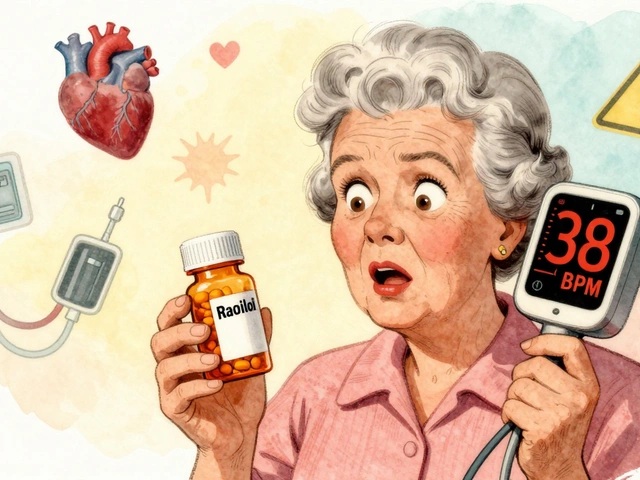UGT1A1 – What It Is and Why It Matters
You've probably heard the name UGT1A1 pop up in articles about chemotherapy or jaundice. In plain terms, UGT1A1 is an enzyme that helps your liver break down certain substances, especially bilirubin and some medicines. If this enzyme works well, your body clears those compounds quickly and safely. When it doesn't work as expected, drugs can build up, side effects can get worse, and you might see yellowing of the skin or eyes.
Why should you care? Because many common prescriptions rely on UGT1A1 to stay in the safe zone. Doctors often check your UGT1A1 status before starting meds like irinotecan (a chemo drug) or atazanavir (an HIV treatment). Knowing your enzyme activity can help avoid scary side effects and make treatment more effective.
How UGT1A2 Impacts Common Medications
Here are a few everyday drugs where UGT1A1 plays a big role:
- Irinotecan – Used for colon cancer. People with low UGT1A1 activity can get severe diarrhea and low blood cells. Doctors may lower the dose or choose another drug.
- Atazanavir – An HIV pill. If UGT1A1 is slow, bilirubin can rise and cause a harmless but noticeable yellow tint. Some patients switch to a different medication to stay comfortable.
- Rifampin – An antibiotic for TB. It can slightly inhibit UGT1A1, meaning other meds that depend on the enzyme might need a dose tweak.
Even over‑the‑counter products like certain herbal supplements can affect UGT1A1. If you mix a supplement with a prescription that needs the enzyme, you might end up with unexpected side effects.
When to Consider UGT1A1 Testing
Testing is a simple blood or cheek‑swab test that looks for genetic variations. You might want it if:
- You are about to start chemotherapy that includes irinotecan.
- Your doctor mentions the enzyme while discussing an HIV regimen.
- You have a history of unexplained jaundice or high bilirubin.
- Your family has known UGT1A1 variations (common in certain ethnic groups).
The test results usually fall into three categories: normal activity, intermediate activity, and low activity. Normal means standard dosing is fine. Intermediate may need a modest dose cut, and low activity often calls for a major dose change or a different drug.
If you get tested, keep the results handy. Share them with any new doctors, pharmacists, or when you fill a prescription online. Most online pharmacy guides on our site, like the Reglan (Metoclopramide) Guide or the Buy Generic Bupropion Online Cheap UK, remind you to check for enzyme interactions before ordering.
Bottom line: UGT1A1 is a tiny protein with a big impact on how your body handles meds. Knowing your status can keep you safe, avoid nasty side effects, and help doctors choose the right dose. If you think any of the above situations apply to you, ask your doctor about a UGT1A1 test. Staying informed is the easiest way to keep your medication plan on track.
Genetic Factors Behind Gallstones: How Likely Are You to Develop Them?
Explore how genetics influences gallstone formation, learn the key genes involved, assess your personal risk, and discover practical steps to manage it.





